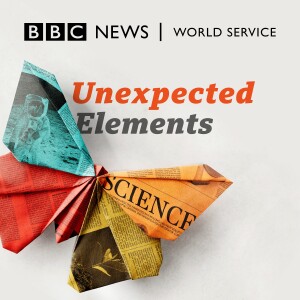
This year’s Atlantic hurricane season has seen a new record for severe storms says Climatologist Michael Mann. He says warming oceans are one of the drivers.
And Australia has seen spring temperatures hit new highs. Climate scientist Sarah Perkins – Kirkpatrick says it’s all the more remarkable as weather patterns are currently in a cycle associated with cooler temperatures.
Where exactly did SARS- COV-2 emerge from? That’s one of the questions for a WHO fact-finding mission to China looking into the origins of the Virus. Peter Daszak has worked with Chinese scientists for many years, looking for bat viruses with the potential to jump to humans. He tells us how the mission hopes to map out the event which led to the initial spread of the virus.
And the Japanese Hayabusa2 space probe is due to return to earth. Masaki Fujimoto
Deputy director of the Japanese Space Agency JAXA, tell us what to expect when a cargo of material from a distant asteroid lands in the Australian desert.
From dumping raw sewage into rivers to littering the streets with our trash, humans don’t have a great track record when it comes to dealing with our waste. It’s something that CrowdScience listener and civil engineer Marc has noticed: he wonders if humans are particularly prone to messing up our surroundings, while other species are instinctively more hygienic and well-organised.
Aasre we, by nature, really less clean and tidy than other animals? Farming and technology have allowed us to live more densely and generate more rubbish - maybe our cleaning instincts just aren’t up to the vast quantities of waste we spew out? CrowdScience digs into the past to see if early human rubbish heaps can turn up any answers. We follow a sewer down to the River Thames to hear about The Great Stink of Victorian London; turn to ants for housekeeping inspiration; and find out how to raise hygiene standards by tapping into our feelings of disgust and our desire to follow rules.
(Image: Getty Images)
view more
More Episodes
Supermassive numbers
 2024-11-08
2024-11-08
 2024-11-08
2024-11-08
The Swing of Things
 2024-11-01
2024-11-01
 2024-11-01
2024-11-01
Mystery blobs
 2024-10-25
2024-10-25
 2024-10-25
2024-10-25
TV made me do it
 2024-10-18
2024-10-18
 2024-10-18
2024-10-18
The world's longest treasure hunt
 2024-10-11
2024-10-11
 2024-10-11
2024-10-11
Science to make you smile
 2024-10-04
2024-10-04
 2024-10-04
2024-10-04
All things Oregon!
 2024-09-27
2024-09-27
 2024-09-27
2024-09-27
Ngā Wai Hono i te Pō: The new Māori Kuini
 2024-09-13
2024-09-13
 2024-09-13
2024-09-13
Thrillseekers
 2024-09-06
2024-09-06
 2024-09-06
2024-09-06
The world's worst tourist
 2024-08-30
2024-08-30
 2024-08-30
2024-08-30
A sticky situation
 2024-08-23
2024-08-23
 2024-08-23
2024-08-23
The only one
 2024-08-16
2024-08-16
 2024-08-16
2024-08-16
Let them eat crab
 2024-08-09
2024-08-09
 2024-08-09
2024-08-09
Can I eat it?
 2024-08-02
2024-08-02
 2024-08-02
2024-08-02
Breaking, climbing, and surfing
 2024-07-26
2024-07-26
 2024-07-26
2024-07-26
Marriage madness
 2024-07-19
2024-07-19
 2024-07-19
2024-07-19
Political Jet Lag
 2024-07-12
2024-07-12
 2024-07-12
2024-07-12
Mushroom magic
 2024-07-05
2024-07-05
 2024-07-05
2024-07-05
Lights out
 2024-06-28
2024-06-28
 2024-06-28
2024-06-28
012345678910111213141516171819
Create your
podcast in
minutes
- Full-featured podcast site
- Unlimited storage and bandwidth
- Comprehensive podcast stats
- Distribute to Apple Podcasts, Spotify, and more
- Make money with your podcast
It is Free
- Privacy Policy
- Cookie Policy
- Terms of Use
- Consent Preferences
- Copyright © 2015-2024 Podbean.com



